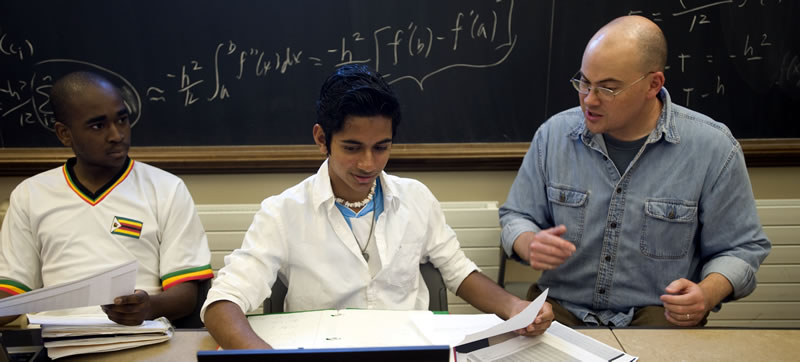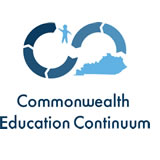CPE co-leads new state collaboration to strengthen education pipeline
December 04, 2020

The Kentucky Council on Postsecondary Education is helping lead a new statewide partnership to assist students as they progress through each level of the public education system, from preschool through college and into sustainable careers.

Called the Commonwealth Education Continuum, the collaboration will bring together 27 experts with broad experience from early childhood to adult education.
The group will focus on providing equitable access to opportunities, a diverse and high-quality teacher workforce and more support for students and families at every stage of the education pipeline, including at the postsecondary level and beyond.
Gov. Andy Beshear announced the initiative on Thursday, along with Lt. Gov. Jacqueline Coleman, CPE President Aaron Thompson and state Education Commissioner Jason Glass. The Kentucky Education and Workforce Development Cabinet and the Kentucky Department of Education are both partners in the effort.
Beshear said easing educational transitions and providing a cohesive experience across the system is crucial to closing outcome gaps related to race and income. However, he added that no single agency can tackle the issues facing public education alone.
"This is an education first administration, and building a better Kentucky starts with our public education system," Beshear said. "This continuum ensures that we're taking advantage of every opportunity that helps our students and teachers."
I'm confident that the Commonwealth Continuum will serve as an opportunity for deep and meaningful collaboration and ultimately improve the academic and career outcomes for all our students. - CPE President Aaron Thompson
Thompson said three urgent priorities include providing more information about how to plan and pay for college, improving access to early postsecondary experiences like dual credit courses, and recruiting more men and people of color into the teacher pool.
"I'm confident that the Commonwealth Continuum will serve as an opportunity for deep and meaningful collaboration and ultimately improve the academic and career outcomes for all our students," he said. "And we will not leave any child behind as we do this."
Coleman, Thompson and Glass will all serve as co-chairs for the continuum, and members will be announced soon. The group will begin meeting in January.
Coleman, who also serves as secretary of the Education and Workforce Development Cabinet, said the announcement is another step toward providing every Kentuckian the tools to "succeed from cradle to career."
"The collaboration between these shareholders and leaders will help us work together to build a better Kentucky for everyone," she said.
Officials explained Thursday that, among the many goals, the initiative will seek to strengthen career readiness and success as students enter the workforce. The group also wants to improve awareness of postsecondary opportunities through a unified, state-level communication and outreach campaign.
Students often struggle the most when they hit major transition points in education, such as moving from high school to college or training. That's typically due to shortfalls in readiness or a lack of information among students and parents, officials said.
According to the National Assessment of Educational Progress, only 51% of Kentucky children are kindergarten-ready and 40% of Kentucky 4th-graders are proficient in mathematics. That percentage falls to 29% by middle school.
In addition, Kentucky students are two times more likely to be male than their teacher, and minorities comprise 23% of public school students but only 4.8% of teachers.
To address the significant attainment gaps between underrepresented minority and white adults, Glass said, "The change has to start with our schools, because schools are a microcosm of our larger society."
"Our educators must be able to teach with cultural awareness of student needs and learning styles. That means we need a more diverse teaching workforce," he said.
Thompson also detailed how a lack of representation can lead to disparities in the transition to college and said excellence in higher education depends on success in early childhood.
Overall, only 60% of Kentucky high school graduates are college- or career-ready, which leads to Kentucky's in-state college-going rate being just 51.7%, down from 55% in 2013-14, and significantly below the national average of 70%. The gaps remain higher for non-white students.
"As a Kentuckian whose father was an illiterate coal miner and whose mother had only an eighth-grade education, I can tell you that the P-20 education system mattered to me," Thompson said.
Last Updated: 5/24/2022
